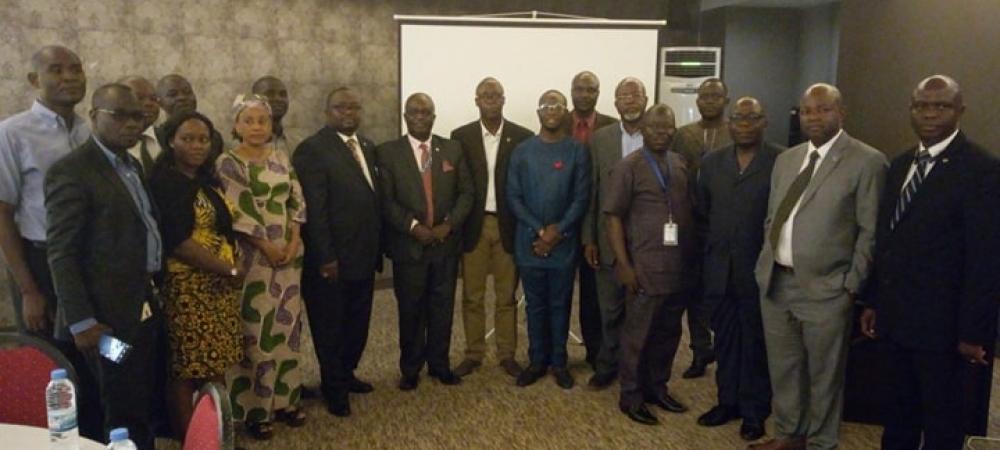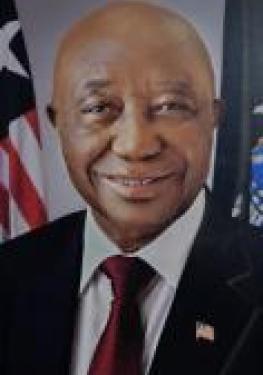
The Environmental Protection Agency (EPA) of Liberia and the United Nations Development Program (UNDP) on Thursday, February 28, 2019 held an investment meeting with representatives of businesses operating in Liberia.
The ‘Climate Sensitive Investment Meeting’ on the Monrovia Metropolitan Climate Resilience Project (MMCRP), which attracted representatives of concession companies, banks, airlines and other institutions was intended to facilitate understanding of the MMCRP and the opportunity for investment.
In a welcome statement, the Focal Point for United Nations Framework Convention on Climate Change (UNFCCC), Benjamin S. Karmorh said the meeting was intended to encourage members of the private sector participate in the proposed MMCRP.
Prof. Karmorh said the EPA is aware that the role of the private sector in climate change mitigation or adaptation plan is important and noted that your participation in the MMCRP would be a contribution to the global effort in addressing the impact of climate change and the fulfillment of the pro-poor agenda.
In a PowerPoint Presentation, EPA Executive Director, Dr. Nathaniel T. Blama, Sr. explained the importance of investing in the Monrovia Metropolitan Climate Resilience Project, which seeks to implement a variety of coastal defense activities to protect five areas around the mouth of the Mesurado River, West Point, and the south-west-facing stretch from Mamba Point down to Bernard’s Beach, which are vulnerable to coastal erosion.
Dr. Blama disclosed that Liberia’s coastline is experiencing sea level rise and extreme weather events are eroding the coast and posing an existential threat to some areas of Monrovia.
Large parts of the city are likely to be affected by sea level rise, with a significant displacement of people, loss of critical infrastructure and economic assets, loss of livelihoods and social disruption and the loss of critical ecosystems and ecosystem services, he noted.
According to him over 674 households are reported to have already been displaced and it is estimated that up to a further 30,000 households are likely to be affected.
He indicated that an assessment conducted for the preparatory assessment proposal estimated the replacement cost of infrastructure alone to be in the range of US$ 2 billion.
Dr. Blama disclosed that the government, through the EPA is acting now to increase resilience against the worst impacts of climate change that are eroding key areas of the city and surrounding coastline.
The project, according to Dr. Blama seeks to access a US$41 million grant from the Green Climate Fund (GCF), but explained that the GCF has asked Liberia to also contribute financially to the project.
He disclosed that UNDP is working with his agency to prepare the proposal for the grant.
He noted that the government is constrained and cannot be the sole provider of co-financing under the GCF requirements and it was important for businesses to see reasons to invest.
Dr. Blama disclosed that investing in the project will attract enormous benefits to the banking, hospitality industry, tourism, transportation and other sectors.
Dr. Blama made reference to Costa Rica, and said the country is generating revenue from protecting its forest.
He told representatives of businesses at the meeting that the private sector now has the opportunity to join this project to ensure lasting benefit to the city and surrounding areas.
John Mason, a consultant did an overview of the MMCRP and highlighted several areas along the coastline from Hotel Africa to Bernard’s Beach in Congo Town that need protection.
He predicted that Liberia would lost significant portion of its coastline, if actions are not taken to protect the five hotspots including Westpoint and the historical Hotel Africa from erosion caused by climate change.



